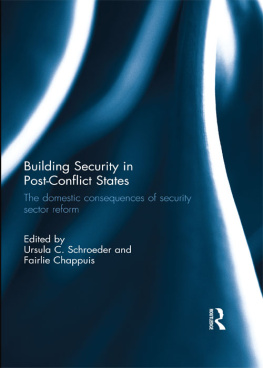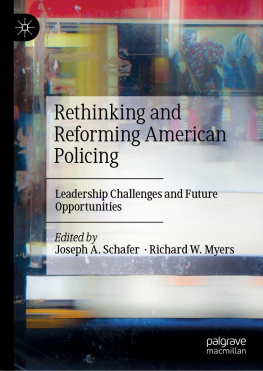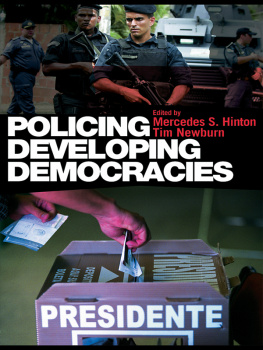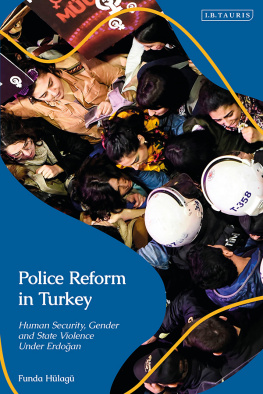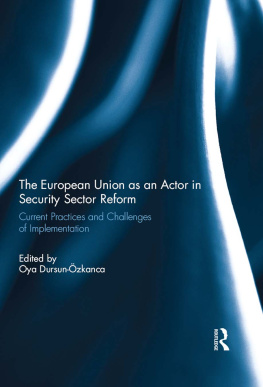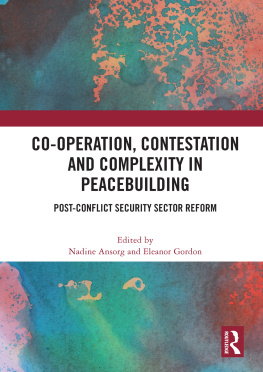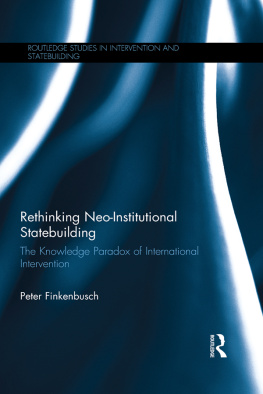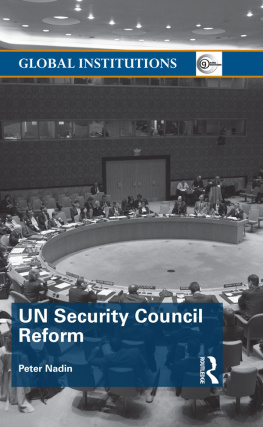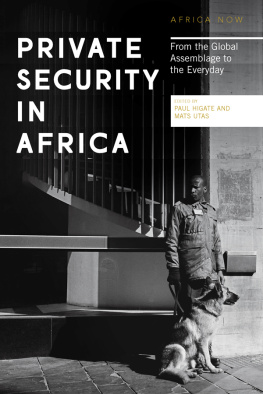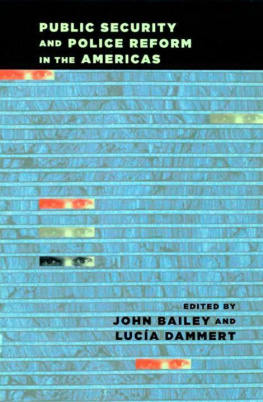
Statebuilding and Police Reform
This book explores how and why police reform became an international phenomenon in the era of statebuilding that followed the end of the Cold War.
Police reform has become an indispensible element in the spread of liberal democracy. Policing is distinguished by its ability to combine reasonable and forcible methods to preserve and spread liberal values. The book examines the reason police reform was introduced as a method of building consensus in Latin America and the Balkans, and documents the development of its use in Africa, the Middle East and the Caucasus region. It illustrates how police power binds the liberal value of freedom to the security needs of post-conflict regions, and discusses its force as a strategy to bring law and order to a global security domain. Drawing on a multi-disciplinary approach to the subject, the book delves deeply into policing as a method to bring coherence to global security. It traces the presence of coherent police strategies in contemporary international relations through studies of the United Nations, the European Union and the Organization for Security and Cooperation in Europe. By contrasting police reform with security sector reform, the book explores how liberal peace is imagined by the international NGO sector, state aid agencies and international organizations.
This book will be of much interest to students of statebuilding, post-conflict reconstruction, critical security studies, development studies and IR in general.
Barry J. Ryan is a lecturer in the School of Politics, International Relations and Philosophy at Keele University.
Routledge Studies in Intervention and Statebuilding
Series Editor: David Chandler
Statebuilding and Intervention
Policies, practices and paradigms
Edited by David Chandler
Reintegration of Armed Groups After Conflict
Politics, violence and transition
Edited by Mats Berdal and David H. Ucko
Security, Development, and the Fragile State
Bridging the gap between theory and policy
David Carment, Stewart Prest, and Yiagadeesen Samy
Kosovo, Intervention and Statebuilding
The international community and the transition to independence
Edited by Aidan Hehir
Critical Perspectives on the Responsibility to Protect
Interrogating theory and practice
Edited by Philip Cunliffe
Statebuilding and Police Reform
The freedom of security
Barry J. Ryan
Statebuilding and Police
Reform
The freedom of security
Barry J. Ryan
First published 2011
by Routledge
2 Park Square, Milton Park, Abingdon, Oxon OX14 4RN
Simultaneously published in the USA and Canada
by Routledge
711 Third Avenue, New York, NY 10017
Routledge is an imprint of the Taylor & Francis Group, an informa business
2011 Barry J. Ryan
The right of Barry J. Ryan to be identified as author of this work has been asserted by him in accordance with sections 77 and 78 of the Copyright, Designs and Patents Act 1988.
All rights reserved. No part of this book may be reprinted or reproduced or utilized in any form or by any electronic, mechanical, or other means, now known or hereafter invented, including photocopying and recording, or in any information storage or retrieval system, without permission in writing from the publishers.
Trademark notice: Product or corporate names may be trademarks or registered trademarks, and are used only for identification and explanation without intent to infringe.
British Library Cataloguing in Publication Data
A catalogue record for this book is available from the British Library
Library of Congress Cataloging in Publication Data
A catalog record has been requested for this book
ISBN: 978-0-415-55833-4 (hbk)
ISBN: 978-0-203-86774-7 (ebk)
To Killian and Ksenija, whose lunacy is my asylum
I have given up doubt,
That old, worn-out coat.
All thats constant
Is the fact of change:
Pearl of love, grit of pain.
from Letter to Lisbon by Sen Dunne (19561995)
Contents
Preface
This book is more than simply the culmination of ten years of research and field work. It reflects a long familial history in the field of policing. There are at least three generations of police officers in my family. My great grandfather, Christopher Ryan, and two of his brothers, joined the colonial Royal Irish Constabulary (RIC) in 1885. My grandfather, Patrick Ryan, was one of the first members of An Garda Sochana, the new police force of the Irish Free State. While his father had protected the order of the Empire, he was a police officer in a post-colonial era of statebuilding. Four of his sons followed him into the force, one of whom was seriously injured in the line of duty in the late 1960s. Together these mens careers spanned the most crucial period in the development of the police. This book is therefore not simply an objective academic study of police power. Permeating its pages is a personal genealogy that connects my life to a century of policing.
There are a number of people whose assistance and support throughout this project needs to be acknowledged. First of all I wish to thank David Chandler, for his support and advice. Importantly, I need to also acknowledge the existential advice and friendship of Mick Dillon at the University of Lancaster, who inspired this book during countless conversations.
Others whose contribution has been so vital include my former colleagues at the University of Limerick. It seems only fair to point out that Dominic Murray and Dermot Walsh are entirely responsible for introducing me to policing as a political problem and to iterate my eternal gratitude for the confidence and support they gave to me at crucial points in my career. In addition, I want to acknowledge the long-standing support of Stephen Ryan at the University of Ulster. Also I would like to thank Edward Moxon-Browne, Owen Worth, Neil Robinson and Peadar Kirby. Thanks are due to Ger Downes, Martin Mullins and Lily Hamourtziadou, who read early drafts of chapters. Thanks also to the oracular Sean Molloy at the University of Edinburgh and to Aidan Hehir at Westminster who have offered advice and direction. I wish further to express gratitude to all of my colleagues in the School of Politics, International Relations and Philosophy at Keele University. Specifically I will mention two colleagues to whom I owe more than I can express: Tim Doyle and Luis Lobo-Guerrero. I want to acknowledge the expert assistance of Alessandra Ceccarelli, who acted as a research assistant on this project. And to my wife, Dragana; who knows only too well how many hours the writing of this book took from our life together; thank you for your love and understanding.
Finally, to all those omitted from this impossible list, may I express my ardent gratitude. Gabhaim buochas chro libh go lir.
Acknowledgement
The excerpt from Letter to Lisbon on page vi has been reprinted by kind permission of the Estate of Sen Dunne and The Gallery Press, Loughcrew, Oldcastle, County Meath, Ireland from Collected (2005).


